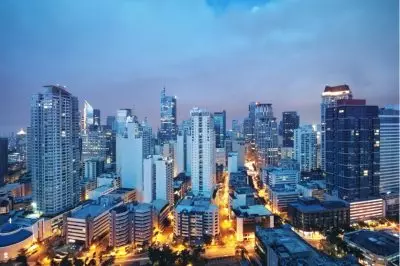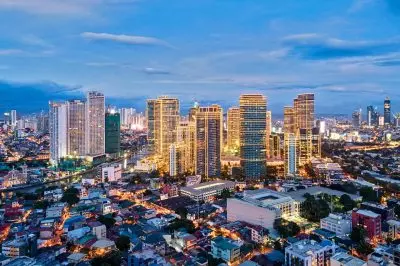 A new tax that has recently been imposed on Philippine online gambling companies could boost even more the office vacancy rate that has already been quite high in the country.
A new tax that has recently been imposed on Philippine online gambling companies could boost even more the office vacancy rate that has already been quite high in the country.
According to reports, the tax, which was officially signed into law by Philippine President Rodrigo Duterte in September, may force Chinese-owned and other foreign gambling operators to move their services elsewhere.
Furthermore, the local director of research at Cushman’s, Claro Cordero Jr., projected that vacancy rates may increase to 18% by the end of 2021, which would be the highest vacancy rate in the Philippines in almost two decades. Mr. Cordero further noted that following the implementation of the new tax regulation regarding both the operations and employment of foreign companies, foreign gambling operators may decide to move to other jurisdictions.
Under the measure that was recently officialized by President Duterte a 5% tax was imposed on the gross revenues of foreign online gaming companies, known as Philippine offshore gaming operators (POGOs). Furthermore, foreign citizens employed by such operators are required to pay a 25% tax.
The situation with POGOs in the Phillippines has been complicated over the last few years. Reports from the local accounting firm Isla Lipana have shown that as much as PHP 300 billion (more than $59 million) are being lost by the country to so-called POGOs every year, as the overseas online gambling companies move money overseas.
Philippine Offshore Gambling Companies Face New 5% Tax on Gross Gaming Revenue
 The global Covid-19 pandemic has not spared POGOS and they have been hit hard by the issues associated with it, just like many other industries. Reports have shown that over 50% of the 60 registered Philippine offshore gaming operators in the country have ceased operations since the beginning of the coronavirus pandemic.
The global Covid-19 pandemic has not spared POGOS and they have been hit hard by the issues associated with it, just like many other industries. Reports have shown that over 50% of the 60 registered Philippine offshore gaming operators in the country have ceased operations since the beginning of the coronavirus pandemic.
Currently, POGOs occupy office space of 3.4 million square feet in metropolitan Manila. In comparison, these companies reportedly occupied 13.5 million square feet of office space in 2019, with the vacancies being once again pushed up.
Offshore gambling companies have started establishing in the Philippines thanks to the improvement brought in the country’s relations with China, which currently incriminates online gambling. However, according to some analysts, the criticism faced by POGOs, as well as the fact they have been moving local residents’ money to overseas locations, could bring a not-so-friendly leader and approach to the companies following the presidential elections that are set to take place in 2022.
Some experts, such as KMC Savills’ managing director Michael McCullough, believe that the increased taxes are one of the factors that make the situation more difficult for POGOs. Mr. McCullough has reminded there were many kickbacks, bribes and red tape, which is also associated with the operations of so-called Philippine offshore online gambling companies.
As mentioned above, President Rodrigo Duterte has signed the measure to impose additional taxes on POGOs in September. Under the Republic Act 11590, a 5% tax is imposed on the gross gaming revenue generated by online gaming companies, while foreign residents who are employed by such operators and their service providers are subject to 25% tax on their income. The Philippine Government has passed the piece of legislation, which is also known as An Act Taxing POGOs, as part of its efforts to regulate all forms of legal gambling and suspend potential illegal gambling operations in the country.